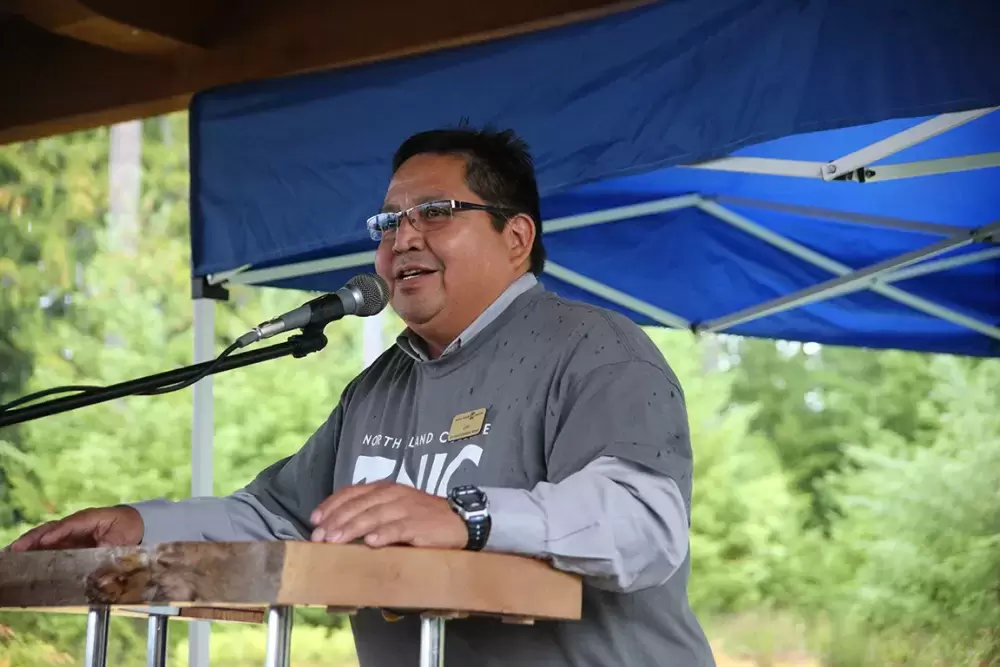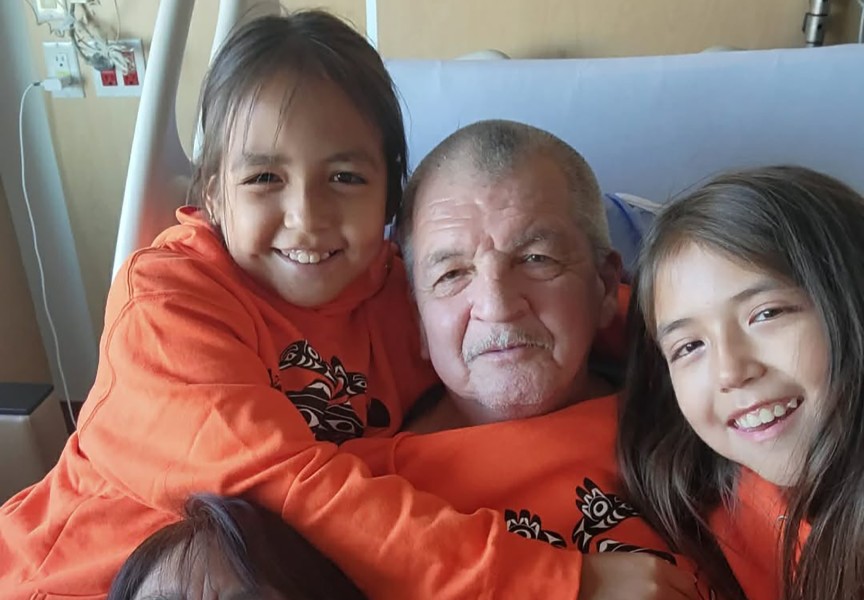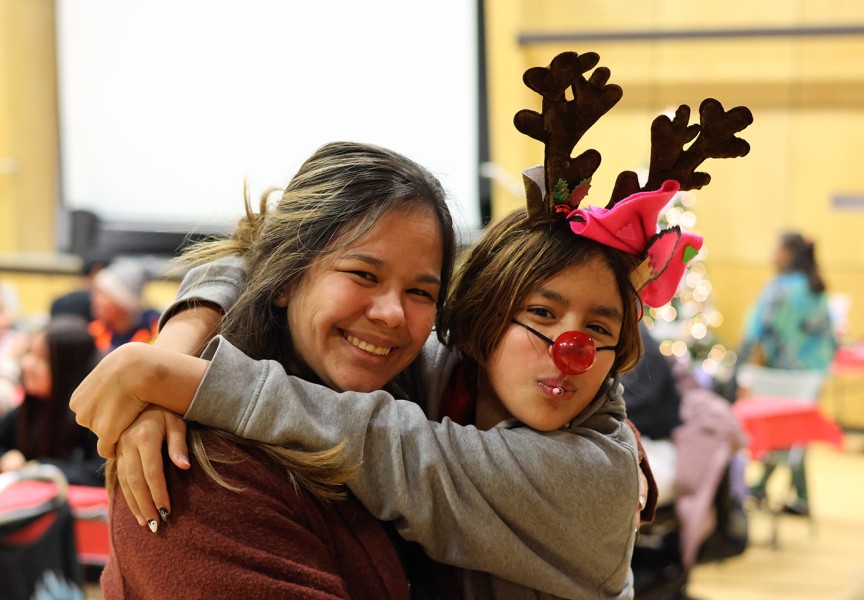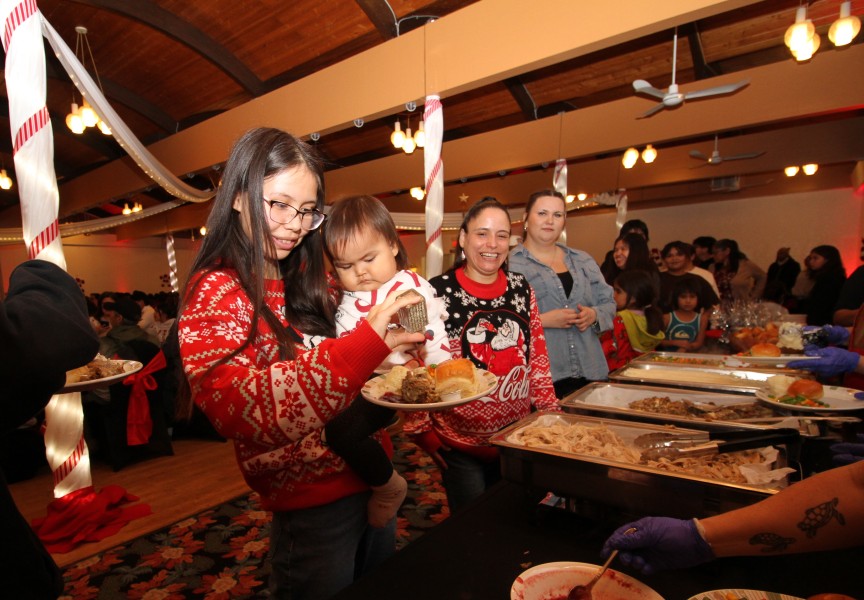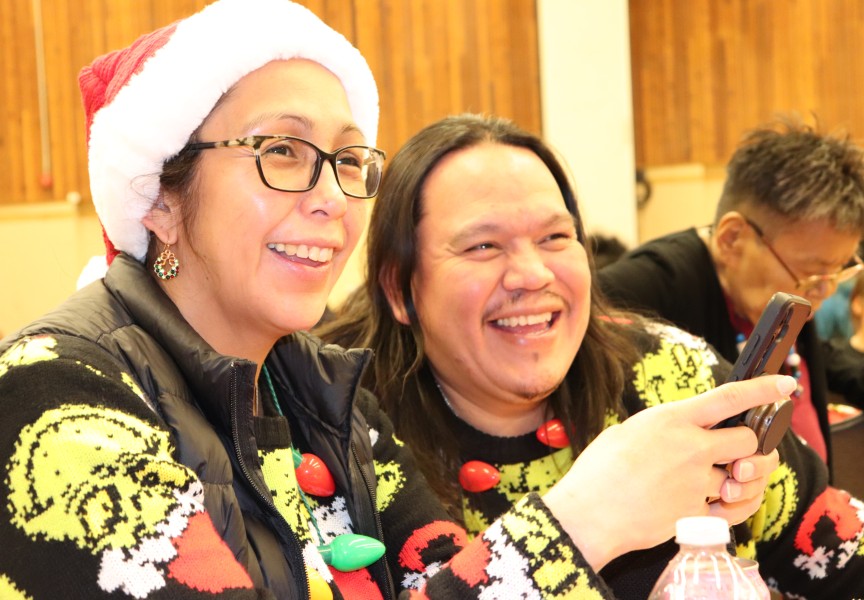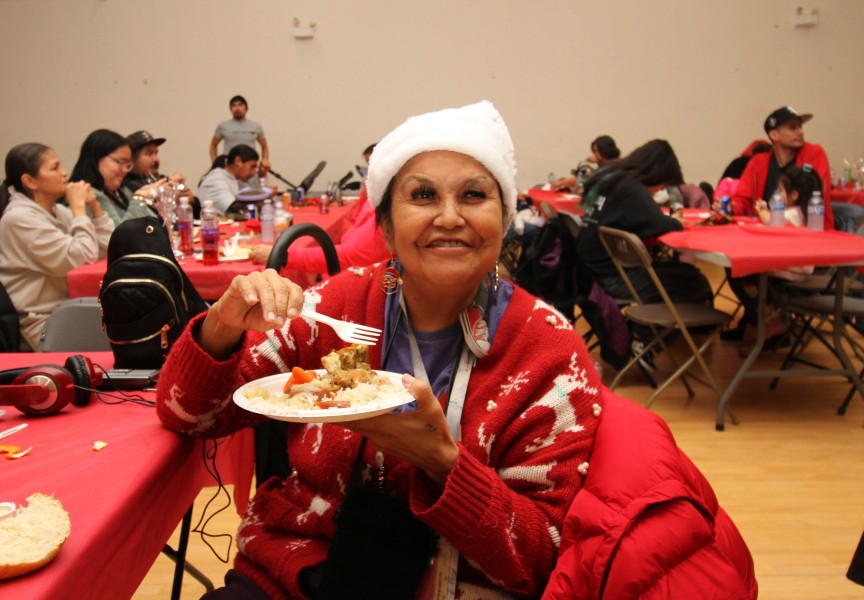It was orientation day Sept. 1 for students attending North Island College campus in Port Alberni. The day was a rainy one, and students huddled in the Aboriginal gathering place outside the school for scheduled speeches.
Luke George of Tseshaht is the aboriginal education advisor at the college, and he provided a welcome on behalf of the Tseshaht and Hupacasath.
“At least we’re under here staying dry today,” he said of the log structure on the school lawn. Tseshaht and Hupacasath donated the logs for the construction of the building.
George is an elected band councillor with the Tseshaht Nation. He provided a first lesson to the students about the Nuu-chah-nulth language, explaining that the ‘aht’ in Tseshaht means ‘people’ and the meaning of the word Ha’wiih is hereditary chiefs.
Despite the busy morning, Luke George sat down with Ha-Shilth-Sa to talk about the college, which has (depending on the programs being offered) between 12 and 18 per cent annual aboriginal (First Nations Métis and Inuit) enrollment at the campus.
North Island College offers two degree programs—business and nursing—but a wide variety of diploma and certificate programs. George said a number of those programs have seats set aside for aboriginal students.
There is a lot of interest in a number of the programs being offered at the school, including business administration and early childhood education. There are trades programs too.
The college offers support programs for those needing extra help, both in their classes and including some emergency financial aid.
Luke is the man to go to when an aboriginal student is struggling, and is encouraging the students at NIC this year to come to him to discuss their concerns. Hopefully, he said, students will stop by in plenty of time for him to find tutors or counselling, or find help from the Nuu-chah-nulth Tribal Council programs and the individual Nuu-chah-nulth Nations.
George believes that the students’ families and communities play a big part in student success. When he decided to go back to school, it was his grandmother, Rosie Tatoosh, the anchor of the family, that kept him motivated, he said.
George also wants to keep the Aboriginal students connected to each other, by once a month hosting a luncheon, keeping students notified of community events like potlatches being held in Port Alberni, and by being a friendly guy just to talk to.
The college also has a lot of partnerships within the Nuu-chah-nulth territories. The Health Care Aid certificate, for example, was run through the Port Alberni Friendship Centre, and this year in partnership with the Nuu-chah-nulth Employment and Training Program (NETP) in conjunction with the Nuu-chah-nulth Tribal Council’s post-secondary department.
Nuu-chah-nulth nations are recognizing more and more that their members need certifications. So the college works with the West Coast Advisory Committee to understand community needs. The construction/laborer program, for example, came from the nations’ recommendation.
For those who wish to attend the college, which also offers upgrading programs for transfers to other post-secondary schools, they are encouraged to reach out to Luke George. He’ll be seen at career fairs in the communities this year and is only a phone call away.
He said it’s important to push people to consider that next step. And get their applications in early.
The students at NIC this year were excited to get their year started, despite the rain. Information booths were set up, including one with the NTC post-secondary department, which has lots of information for those considering higher learning.
Student union representatives were encouraging Aboriginal students to run for a position to have a say in how the campuses are run.
If you want a say, get involved, said George.
He also encouraged students to seek out grants, scholarships and bursaries, local and national, to ease the financial burden of school. There are a lot of organizations that want to help aboriginal students be successful, he said.

